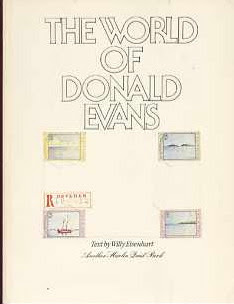Invest Early: Brokerages Lower Commissions Again.
I came to this country as a teenager on a student visa back in 1978. My parents followed me a few years later, mom first with my sister, then dad arrived on an H-1B visa sponsored by an American telecommunications company. After the requisite number of years on the H-1B visa, my parents applied and received a green card (or permanent resident status) and eventually became American citizens. I became a U.S. Citizens after they did.
Being immigrants meant that there were many things about finances that my parents were unsure of. After my dad's work with the telecommunications company ended, he found it difficult to find a job as a telecommunications engineer because his training in a foreign country wasn't easily transferable to what was needed in the US. He spent some time running a restaurant in Foxborough, Massachusetts and subsequently a motel in Kansas. Income was unsteady for our family, but fortunately my parents saved enough money to support our family expenses for some time until their retirement.
My mother came to the US to live with me and my sisters a couple of years before my father did. She didn't have much of an education beyond high school in Taiwan. Her last job was some twenty years prior as a typist for the American military in Taiwan. In Massachusetts where my family settled, my mom started to take English as a Second Language classes in Boston. Twice a week, she would take a bus from our house in Belmont to Harvard Square where she would catch the Red Line subway into Boston to her language school next to the Filene's Basement. She studied English diligently and watched TV shows to understand the language. Her favorite shows were Three's Company and Police Academy
and Police Academy .
.
As the person who was always in charge of the family budget, mom had to learn how to maneuver the American financial institutions. From opening bank accounts to obtain the highest interest rates to investing money in the markets, mom researched and studied. She watched finance shows on PBS, read the newspapers, subscribed to financial advise papers and took action on her own. As a college student back then, I was still completely oblivious about money and how hard my parents tried to make their saved money stretch farther and not have us worry about money or tuition costs at all. Thinking back, I have to marvel at how my mom taught herself how best to save, invest and help us with our education.
One thing my mom did was forcing me to open an IRA account (Individual Retirement Account) the moment I started making money. This was back in early 1980's and it is interesting considering the fact that I had no concept or foresight about retirement whatsoever yet mom, with limited English, was already planning ahead. So when I had summer jobs in college, first as a cocktail waitress and subsequently as an after school teacher in Boston Chinatown, mom made me put aside money because this contribution was pre-tax and reduced my income tax liability, and subsidized me to put the maximum contribution into my IRA account. Mind you, with my lowly wages, I didn't have much of a tax liability, but mom taught me the practice of saving for retirement early. Back then, I believe the maximum I could put in an IRA was about $1600 per year.
I am not certain how she learned about the Boston based Fidelity Investments, but that was the company where my family opened our investment accounts. She managed our accounts by paper correspondence with Fidelity, or she would personally go into Fidelity's office in Boston to handle transactions. She studied about what to invest in by subscribing to financial papers about the various Fidelity funds. It didn't cost anything to purchase mutual funds in our IRA accounts, but if we bought stocks, I believe the commission was some $10 per transaction back then, which was still cheaper than using a brokerage company that charged customers based on a percentage of the total transaction. My memory is that mom invested in the Magellan Fund as well as Contrafund, the latter I still own in my IRA to this day, thankfully.
Fidelity eventually went digital, so I started to manage my account through its website. It also lowered its commission to $7.95 per transaction. Ironically, my mom, who is in her 70's now, doesn't know how to use the computer to handle transactions. In California, she would either go in person to Fidelity's office in Brea, or she would ask me to handle her transactions online. It is funny how our roles are reversed. In this age of everything going digital, I am helping her manage her money now.
A week ago, Fidelity dropped its commission again, this time by almost 40% to just $4.95 per transaction. This is understandable because with the help of technology, many online investment companies are charging less and less for stock trades. To compete for the do-it-yourself investors, Fidelity has to decrease its fees. Besides, it is making plenty of money off investors given the sheer amount of money under its management. Right after Fidelity dropped its trading fee, I noticed that Schwab Investments lowered its commission to match those of Fidelity's.
It is getting cheaper to invest, and with interest rates still in the cellars, hopefully people can take advantage of the lower rates to invest wisely for their future, and anyone who has an earned income should do as my mom told me to do: start putting aside a little bit of money into a retirement account. The earlier you start, the greater a financial nest egg you will accumulate when you retire.
Being immigrants meant that there were many things about finances that my parents were unsure of. After my dad's work with the telecommunications company ended, he found it difficult to find a job as a telecommunications engineer because his training in a foreign country wasn't easily transferable to what was needed in the US. He spent some time running a restaurant in Foxborough, Massachusetts and subsequently a motel in Kansas. Income was unsteady for our family, but fortunately my parents saved enough money to support our family expenses for some time until their retirement.
My mother came to the US to live with me and my sisters a couple of years before my father did. She didn't have much of an education beyond high school in Taiwan. Her last job was some twenty years prior as a typist for the American military in Taiwan. In Massachusetts where my family settled, my mom started to take English as a Second Language classes in Boston. Twice a week, she would take a bus from our house in Belmont to Harvard Square where she would catch the Red Line subway into Boston to her language school next to the Filene's Basement. She studied English diligently and watched TV shows to understand the language. Her favorite shows were Three's Company
As the person who was always in charge of the family budget, mom had to learn how to maneuver the American financial institutions. From opening bank accounts to obtain the highest interest rates to investing money in the markets, mom researched and studied. She watched finance shows on PBS, read the newspapers, subscribed to financial advise papers and took action on her own. As a college student back then, I was still completely oblivious about money and how hard my parents tried to make their saved money stretch farther and not have us worry about money or tuition costs at all. Thinking back, I have to marvel at how my mom taught herself how best to save, invest and help us with our education.
One thing my mom did was forcing me to open an IRA account (Individual Retirement Account) the moment I started making money. This was back in early 1980's and it is interesting considering the fact that I had no concept or foresight about retirement whatsoever yet mom, with limited English, was already planning ahead. So when I had summer jobs in college, first as a cocktail waitress and subsequently as an after school teacher in Boston Chinatown, mom made me put aside money because this contribution was pre-tax and reduced my income tax liability, and subsidized me to put the maximum contribution into my IRA account. Mind you, with my lowly wages, I didn't have much of a tax liability, but mom taught me the practice of saving for retirement early. Back then, I believe the maximum I could put in an IRA was about $1600 per year.
I am not certain how she learned about the Boston based Fidelity Investments, but that was the company where my family opened our investment accounts. She managed our accounts by paper correspondence with Fidelity, or she would personally go into Fidelity's office in Boston to handle transactions. She studied about what to invest in by subscribing to financial papers about the various Fidelity funds. It didn't cost anything to purchase mutual funds in our IRA accounts, but if we bought stocks, I believe the commission was some $10 per transaction back then, which was still cheaper than using a brokerage company that charged customers based on a percentage of the total transaction. My memory is that mom invested in the Magellan Fund as well as Contrafund, the latter I still own in my IRA to this day, thankfully.
Fidelity eventually went digital, so I started to manage my account through its website. It also lowered its commission to $7.95 per transaction. Ironically, my mom, who is in her 70's now, doesn't know how to use the computer to handle transactions. In California, she would either go in person to Fidelity's office in Brea, or she would ask me to handle her transactions online. It is funny how our roles are reversed. In this age of everything going digital, I am helping her manage her money now.
A week ago, Fidelity dropped its commission again, this time by almost 40% to just $4.95 per transaction. This is understandable because with the help of technology, many online investment companies are charging less and less for stock trades. To compete for the do-it-yourself investors, Fidelity has to decrease its fees. Besides, it is making plenty of money off investors given the sheer amount of money under its management. Right after Fidelity dropped its trading fee, I noticed that Schwab Investments lowered its commission to match those of Fidelity's.
It is getting cheaper to invest, and with interest rates still in the cellars, hopefully people can take advantage of the lower rates to invest wisely for their future, and anyone who has an earned income should do as my mom told me to do: start putting aside a little bit of money into a retirement account. The earlier you start, the greater a financial nest egg you will accumulate when you retire.



Comments
Post a Comment